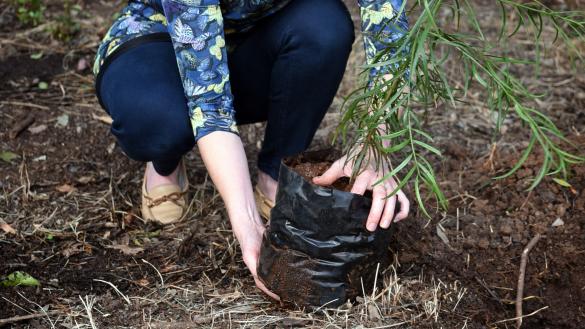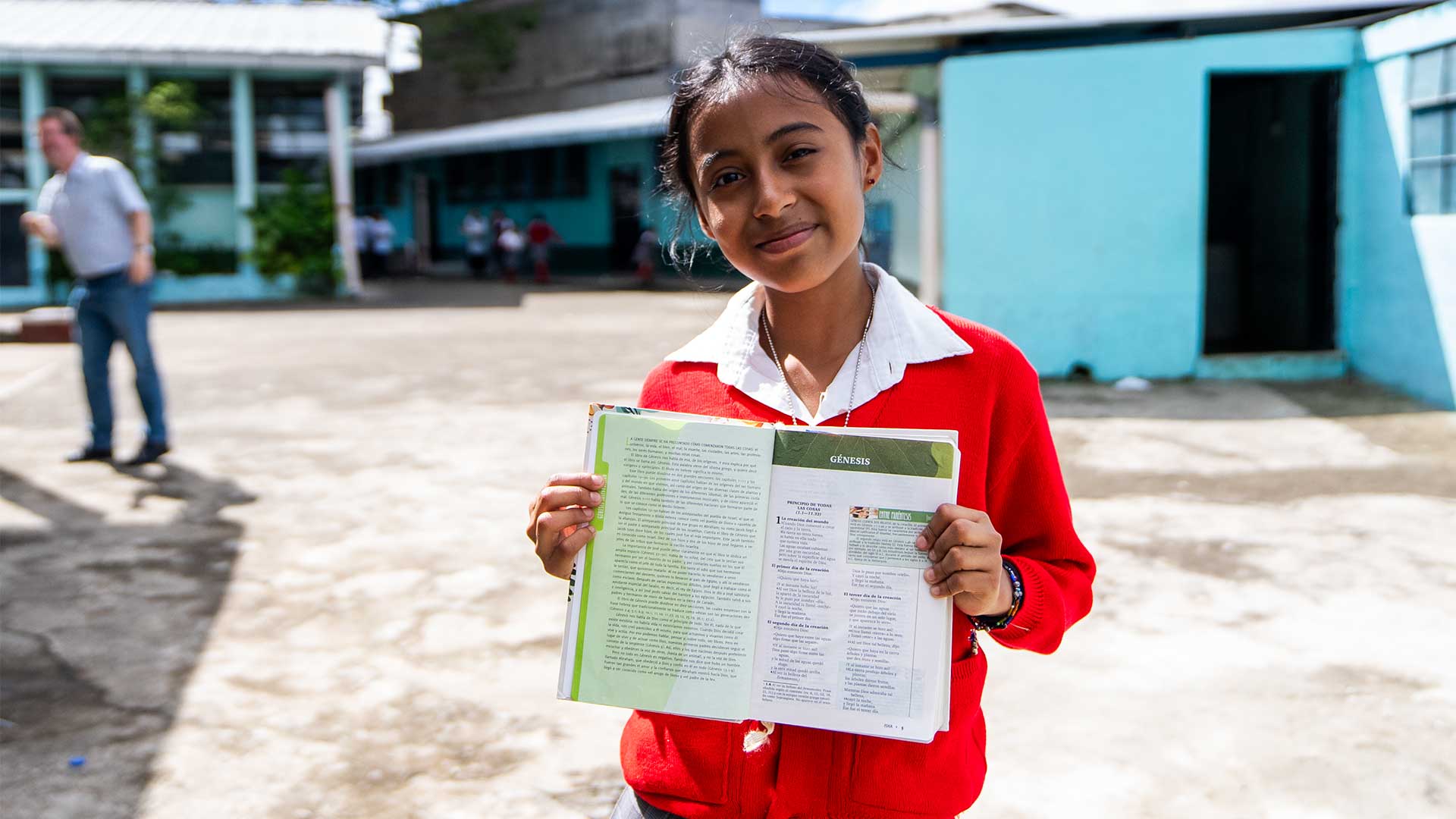Author: Hazel Southam, 28 September 2016
‘This used to the most dangerous place in Nairobi,’ says our guide. We are standing on the edge of the Karuna Forest. We're here to plant trees, but just six years ago, being here would have meant we’d been kidnapped and murdered and our bodies dumped here.
This was the collective grave for anyone who’d been set upon in Nairobi’s streets. As well as this, there was illegal logging and land grabs.

Writer Hazel Southam plants one of the 30 trees that will help restore the forest to its original species
Then, the 2004 Nobel Peace Prize winner, Wangari Maathai, decided that this wouldn’t do. The 2,400-acre site had to be restored to its natural state.
With the local people’s support she staged a land grab of her own, getting in to claim it for what it is a place of incredible beauty. Six years on, Skyes’ monkeys are back in force and Colobus monkeys have just been re-introduced. Other reintroductions are planned.
But for now, the key aim is to slowly get rid of the eucalyptus trees, which are not local, and restore the forest to indigenous species.
This is how five representatives of the British & Foreign Bible Society find themselves down on their knees planting trees, on the eve of the African Biblical Leadership Initiative conference. Think tree-planting and you envisage the Queen at a state occasion. We’d thought something a bit similar, if albeit somewhat lower key.

Paul Williams, CEO of Bible Society (England and Wales) plants a tree in Nairobi's Karuna Forest
Not a bit of it. The Karuna Forest staff have, to their complete glee, given us 30 trees to plant. We get a demonstration: water the pot; massage the water through the soil; turn the tree upside down and gently remove it from the pot.
It’s restoring what’s been damaged
Here’s a key thing: the pot is just a plastic bag, but on no account are we to tear it, as it can be re-used. ‘We don’t want any litter,’ says our guide. Then, it’s down on our knees to scrape the red soil back into the hole; firm it round and water it.
‘Prophesy over your tree,’ says our guide. So each, in our own way, we pray for our little trees and wish them well. Soon, we hope, they’ll have monkeys swinging from their branches.
Washing his hands free of red mud, CEO Paul Williams says, ‘It’s a very inspiring project. It’s restoring what’s been damaged and in doing so it’s bringing life to a lot of different communities who didn’t know each other or were even afraid of each other, but now are working together.’
The ABLI conference runs until Thursday.
Share this:

Running Romans: What is Bible Society’s new course actually like?


Change a child's life with the Bible